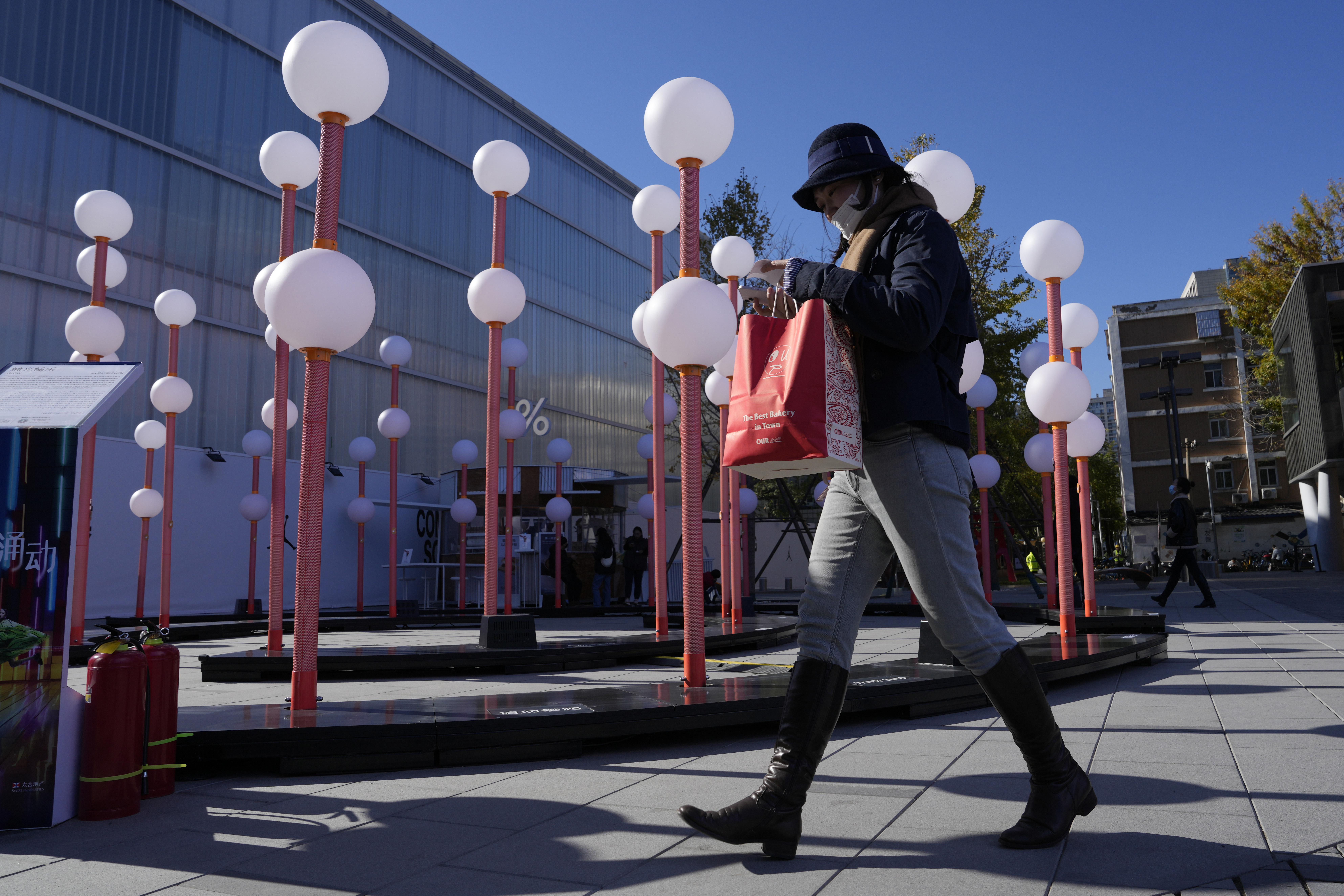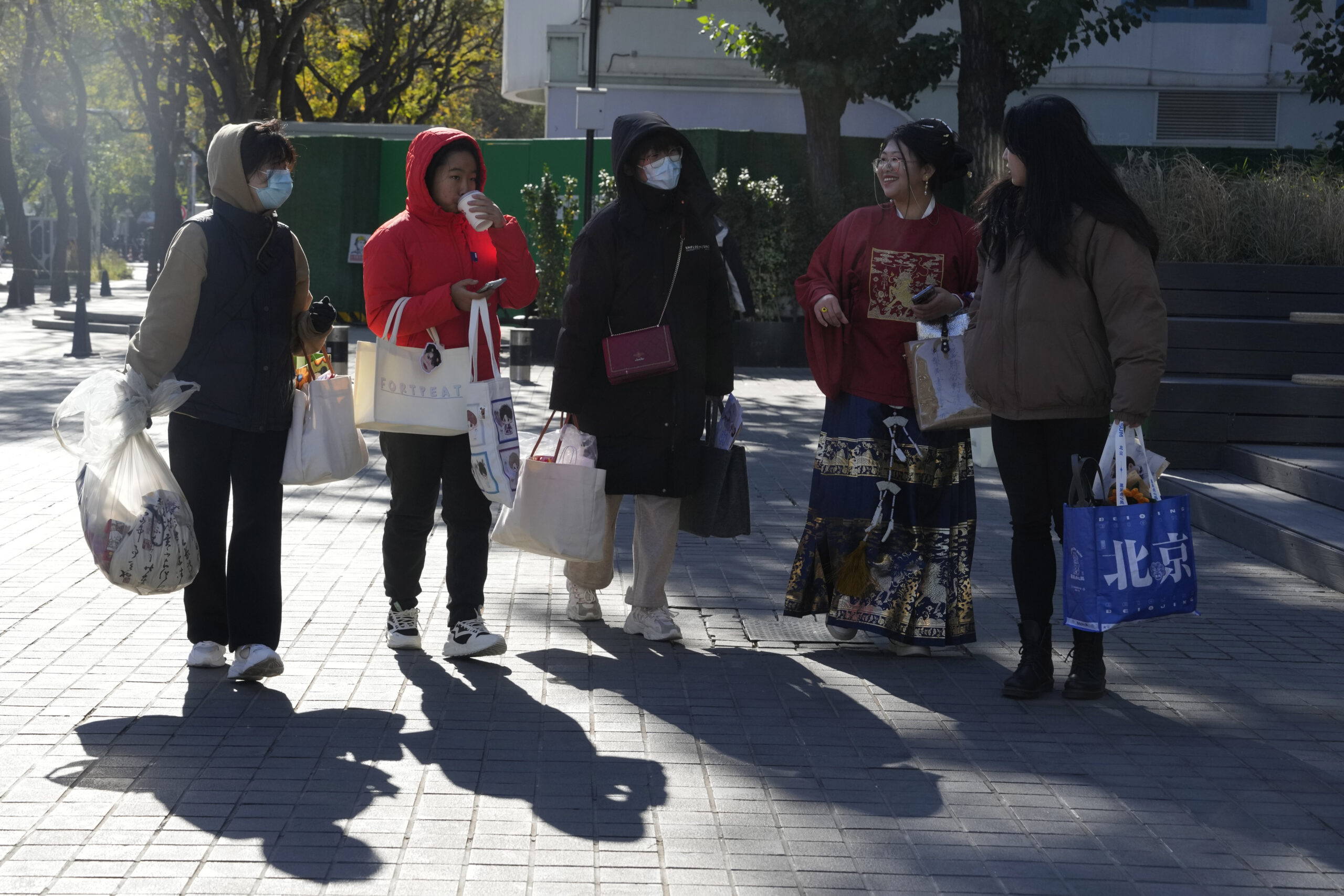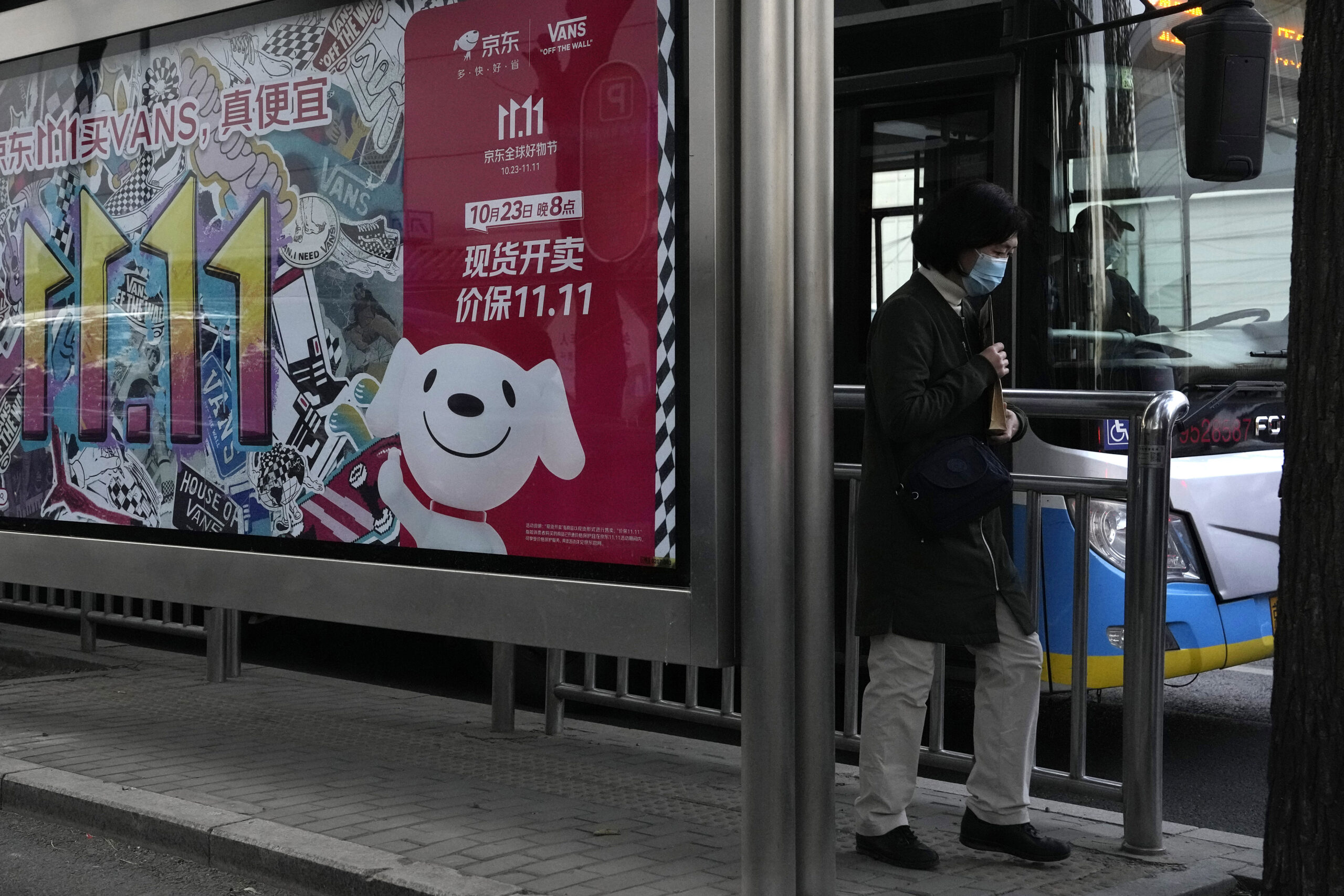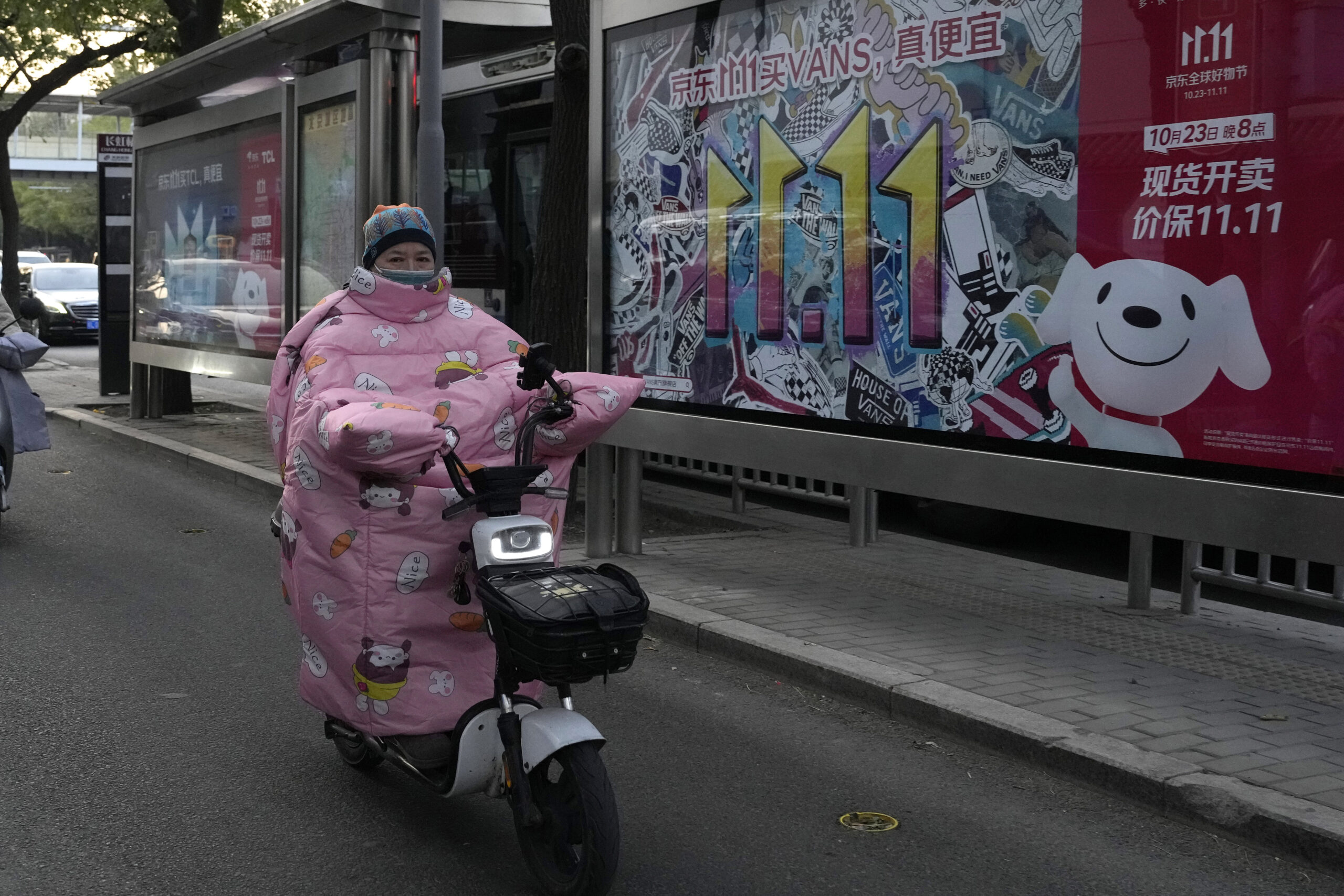HONG KONG (AP) – Shoppers in China have been tightening their purse strings, raising questions over how faltering consumer confidence may affect Saturday’s annual Singles’ Day online retail extravaganza.
Singles Day, also known as “Double 11,” was popularised by e-commerce giant Alibaba. In the days leading up to the event, sellers on Alibaba and elsewhere often slash prices and offer enticing deals.
Given prevailing jitters about jobs and a weak property market, it’s unclear how this year’s festival will fare.
A Bain & Company survey of 3,000 Chinese shoppers found more than three-quarters of those who responded plan to spend less this year, or keep spending level, given uncertainties over how the economy is faring.
That includes people like Shi Gengchen, whose billiard hall business in Beijing’s trendy Chaoyang district has slowed.

Shi said the economy was in a bad condition and had affected his business. “There are fewer customers than before,” he said, adding that his sales are just 40 per cent of what they were before the pandemic.
“I don’t spend a lot,” he said. “Of course, everyone has a desire to spend, but you have to have the money to spend.”
Chinese consumers were much more eager to splurge before COVID-19 hit in 2020. Shoppers spent USD38 billion in 24 hours on Alibaba’s e-commerce platforms during Singles’ Day in 2019.
But the Chinese have become much more cautious over splashing out on extras, analysts say.
“The hype and excitement around Singles’ Day is sort of over,” said Shaun Rein, founder and managing director of Shanghai-based China Market Research Group. “Consumers have over the last nine months been getting discounts on a steady day-to-day basis so they aren’t expecting major discounts on Singles’ Day except for consumables,” he said.

Rein said shoppers will likely be keener to pick up deals on daily necessities like toothpaste, tissue paper and laundry detergent, rather than high-end cosmetics and luxury brands.
Hu Min, a convenience store employee in Shijiazhuang city in northern China’s Hebei province, said that she no longer spends on anything except daily necessities.
“I just feel that people don’t spend as much as before, possibly because they don’t have much to spend,” she said.
In Beijing, Gao Di, 28, said although she did not feel much effect from the economic slowdown, she would not buy things just because of the festival anymore. But if she wants to get some products around the time of Singles’ Day, she will wait and place her orders during the event.
“Perhaps it’s because my mindset has changed,” said Gao, who works in the insurance industry.

E-commerce platforms are emphasizing low prices for this year’s festival, hoping to attract value-conscious customers looking for good deals. For the 2023 campaign, Alibaba’s Tmall boasts “Lowest prices on the web,” while e-commerce platform JD.com’s tagline for its Singles’ Day campaign is “Truly cheap.” Rival retailer Pinduoduo’s is “Low prices, every day.”
Some of their business strategies helped boost sales.
JD.com said Sunday its turnover, order and user numbers during the festival all hit another high, without providing specific figures. It said more than 60 brands have recorded over CNY1 billion in sales and that nearly 20,000 brands saw their turnover surge more than three times from the same period last year. Earlier, the retailer said its new merchants saw their number of orders jump more than five times compared to the same period last month.
Lu Fei, senior researcher at JD.com’s Consumption and Industry Development Research Institute, said the company’s sales figures showed there was still an “obvious” growth in consumption.
“The growth in the sales of mobile phones, jewellery and domestic appliances shows that there’s a user demand for quality growth. But undeniably, consumers are becoming more and more rational,” Lu said.

Some 600 groups of merchants who sell products for industrial purposes also saw their sales hit over CNY100 million on Alibaba’s Taobao platform between 8pm on October 24 and 12am on November 10, according to a post on the company’s Alizila news hub on Friday.
Jacob Cooke, a co-founder and CEO of e-commerce consultancy WPIC Marketing, said that overall spending on durable goods such as home appliances was likely to be weaker because of the crisis in China’s property sector. Feeling less certain of their wealth, shoppers are expected to switch to cheaper brands.
“However, the data shows an enormous appetite among middle- and upper-class consumers to spend on experiences and on products that enhance their health, lifestyles and self-expression,” Cooke said, pointing to categories such as vitamins, pet care and athletic apparel.



